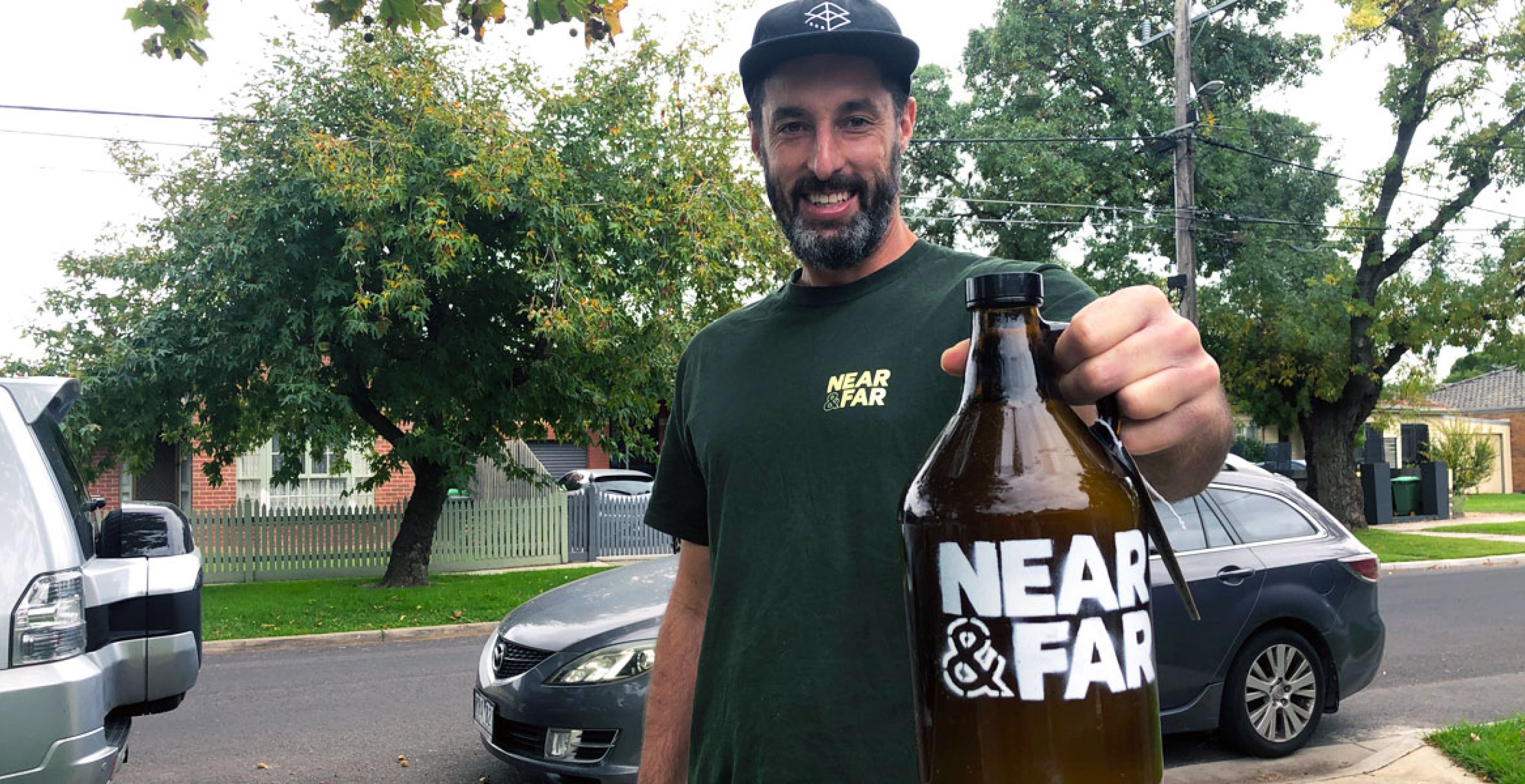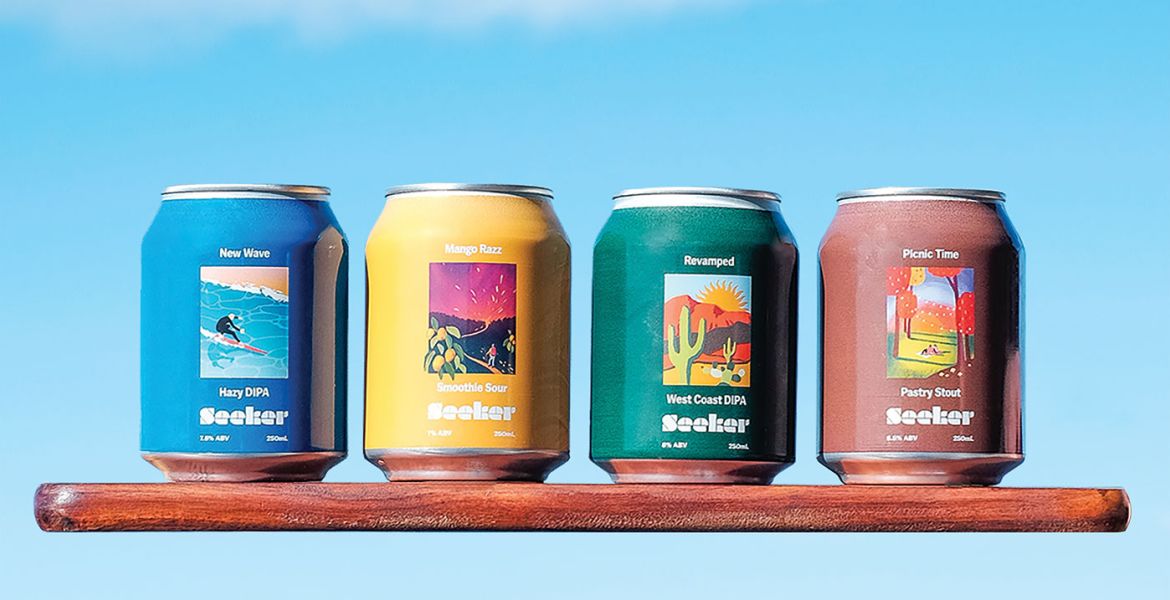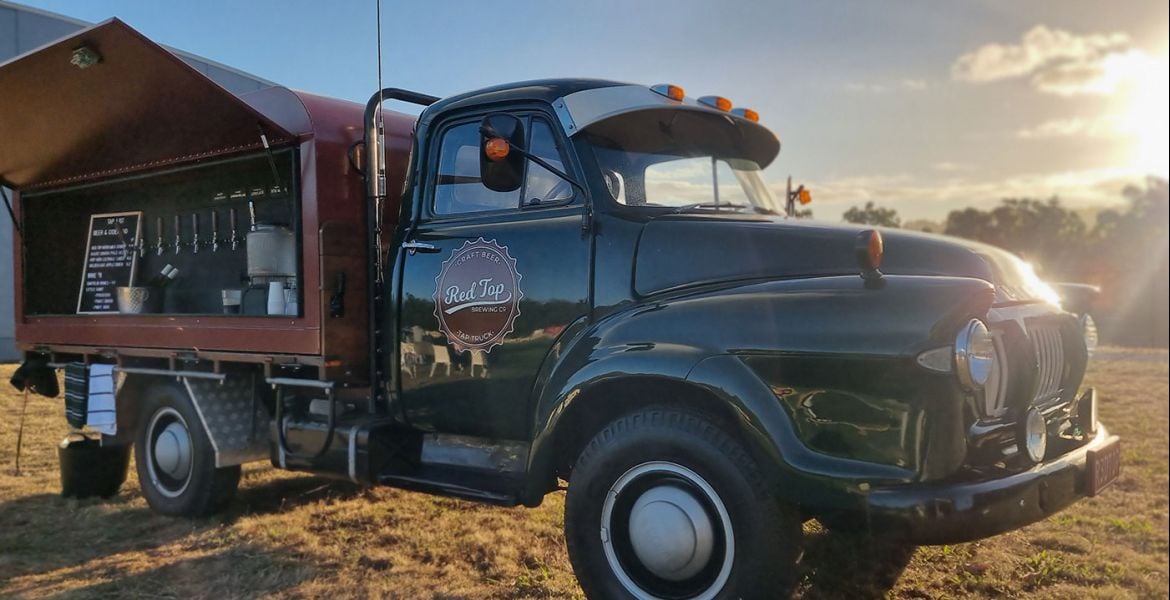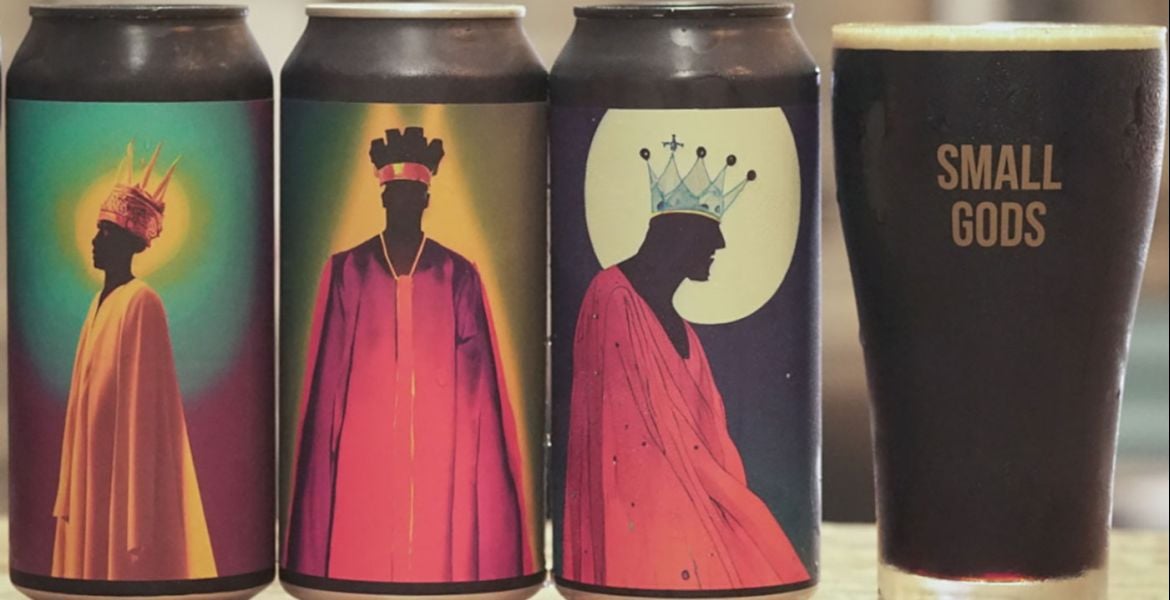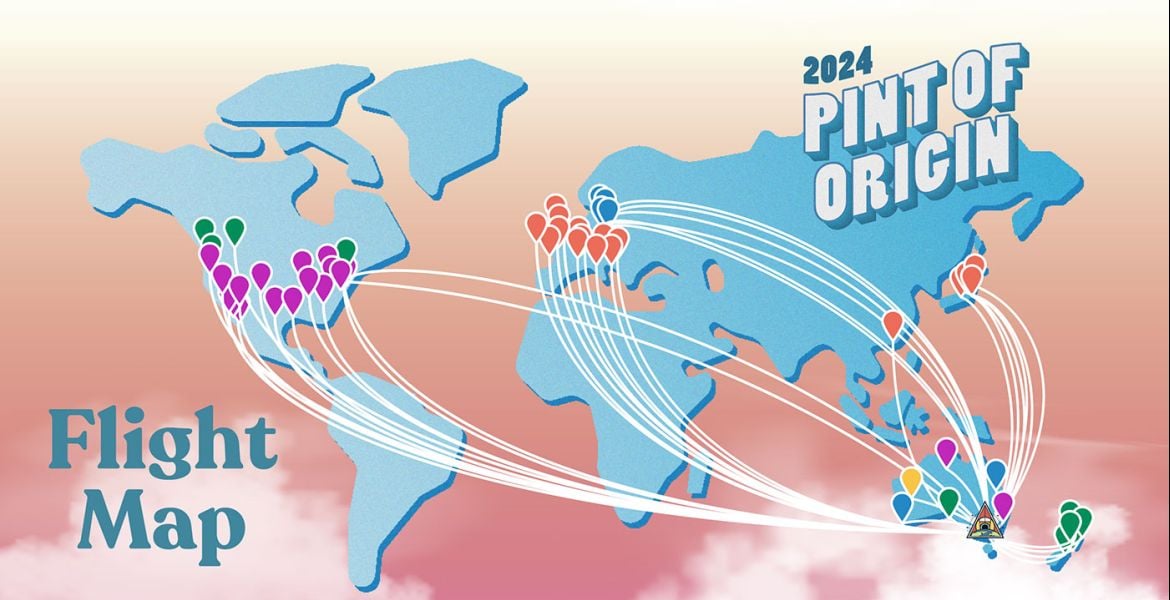"We've filled as many as we'd normally do in a year in the past month," Tom Delmont, Fixation.
"By my estimates, around 70,000 have gone into circulation around Australia in the past few weeks," Kevin Davis, Thirsty Merchants.
“We’ve sold 600 growlers – actual vessels – in the past two and half weeks which is just incredible," Brody Watts, Seasonal Brewing Co.
The challenges of the new normal have caused many businesses to pivot, to find creative solutions to help them cope with the impact of COVID-19. While many of these have pushed businesses into new practices, there's one that's been around for years which has come to the fore as a saviour for many.
It's close to a decade since this site's founder wrote about growlers for The Age; now the closure of venues has seen them enjoy a seemingly unlikely renaissance. Even the ATO has come to the party, effectively turning a blind eye as venues with kegged beer they could no longer sell over the bar fill all shapes and sizes of vessels for sale via takeaway or home delivery.
Among those riding the wave is the team at Seasonal Brewing Co, a brewpub with a warehouse vibe located ten minutes from Perth's CBD in a community-minded suburb that's becoming home to a generation of people looking for more room than offered by inner-city apartments.
“Growlers and squealers have been the only way for us to sell our beer," head brewer Brody Watts says. "Thankfully, the local community has really jumped on board to continue supporting us. We’ve always sold growlers, but we were selling maybe five percent of what we're selling now. Our sales have been massive and, as a result, there have been times when we've come very close to running out.
“We’re obviously not selling as much beer volume as we normally would but we’re getting through about half of our existing stock, which we may have otherwise had to have dumped at some stage. Being a brewpub, we have now other means to sell beer which has been amazing.”
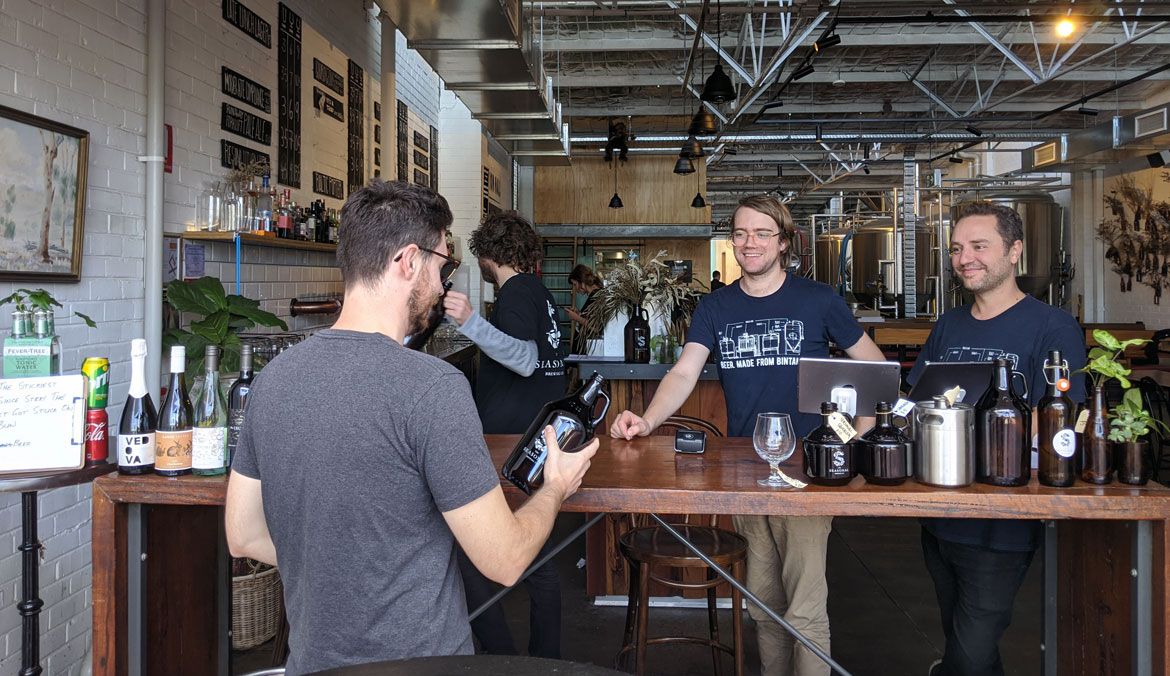
While growlers first appeared locally as something of a novelty item at breweries including Lobethal Bierhaus, 2 Brothers, Colonial Margaret River and Murray's in the late 2000s, and the original Slowbeer in Hawthorn introduced them in a retail environment in 2010, the concept goes back much further.
Debuting in the 1800s, growlers are, perhaps, the ultimate beer-workaround. Can’t package beer for takeaway because you live on the American frontier? No problem, just carry it home in a sealed bucket. Want to sneak in a few bevvies during Prohibition? We’ve got growlers but don’t tell anyone or you’ll be 86’d. Can’t afford a packaging line during the first wave of US craft beer? Well, you get the idea...
Yet, while they've been a mainstay of the US craft beer scene for decades – some breweries have special short stay parking spots for customers swinging by for a refill – they failed to take off in a big way here. Despite their eco-friendly nature, the colourful array on offer, and their ability to give drinkers tap beer at home, it's taken the curve-flattening restrictions imposed last month to bring the humble two-litre vessel and its one-litre "squealer" sibling back into the spotlight.
"We've always had them but here, for whatever reason, people didn't embrace them unless you were a pointy end drinker who wanted to drink fresh beer at home," Fixation co-owner Tom Delmont says. "It's hard to predict if it will be a long term change but it means pretty much nothing goes into the bin – there's zero packaging waste other than the tag we put around the neck of the bottle."
Approaches differ from venue to venue, both in terms of the vessels used – from PET single use bottles to impressive insulated metal constructions complete with taps – and how they tackle cleaning and filling.
At Fixation's Incubator in Collingwood, every growler goes through a miniature version of the CIP (Cleaning In Place) process the brewers use for the brewhouse, meaning you drop in your empty and either take away another they've cleaned or come back in an hour for your own. At Seasonal, they're encouraging people to order online in advance so they can be fresh and ready for pickup at a certain time, although Brody says: "If people are particularly attached to a vessel, we’ll clean and fill on the spot."
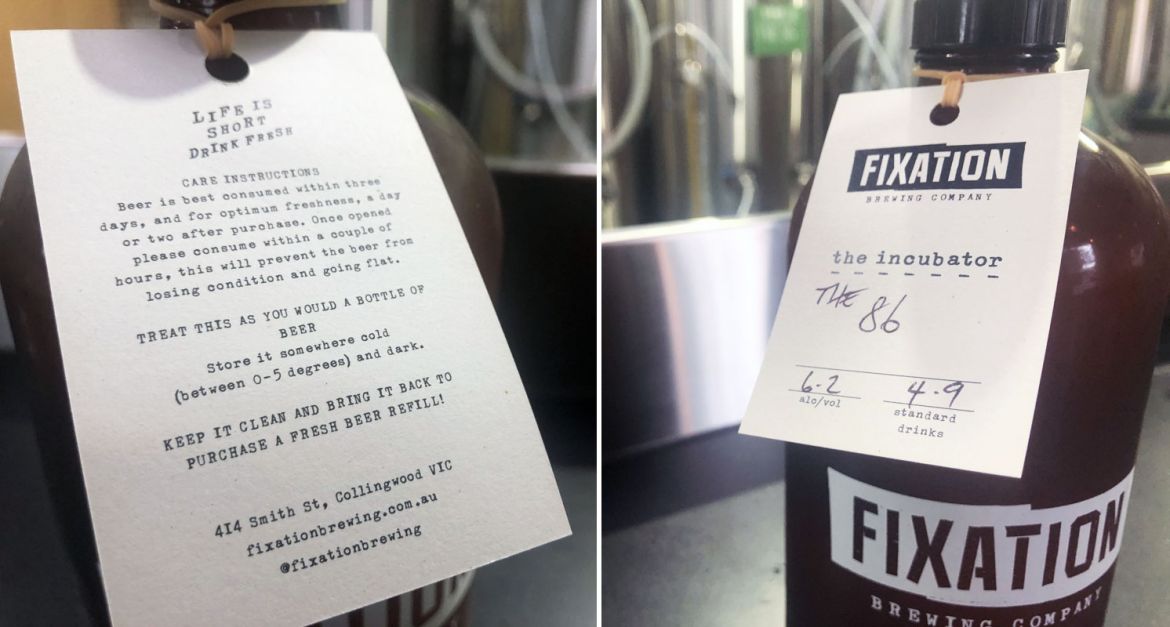
He adds: "We offer free delivery to punters in Maylands, but we're finding that people are using it as an excuse to get some fresh air and stretch their legs a bit, responsibly of course!"
Among the major beneficiaries of this sudden switch in habits is Kevin Davis. His company, Thirsty Merchants, supplies a range of merchandise to the beer, hospo and events industries and had been hit hard by the shutdown. Yet growlers have come to their rescue.
"We've been inundated," he says. "It's been quite literally surreal. We had a container of them over the Christmas holidays and thinking we'd be sitting on them for two years, but that's gone fourfold – 90 percent of what we're doing now is growlers and squealers.
"Everybody is doing it, even people who are canning where it makes no sense [to do growlers as well] – it feels like a movement."
Whether it becomes a movement that lasts beyond this period of necessity or we'll instead see drinkers return to old habits – albeit with added swag to sit alongside their collection of t-shirts, stubby holders and branded glassware – may well depend on the laws surrounding growlers. It's something we'll be looking at in more detail in another article, but issues surrounding excise tax payable on repackaged beer and the licenses required to sell takeaway tap beer have long been topics of concern in the local beer industry.
Indeed, in Kevin's home state of Queensland, customers can't bring a growler to a brewery or bar to be filled due to state government concerns over potential health risks. Their announcement has led to brewers filling longnecks and other bottles to act as one-way growlers to sell more keg beer.
"If the government would get on board, it could be a growler economy out there," Kevin says, declaring himself "so thankful that we persevered" with them.
"It's keeping our business alive. We've been able to keep our warehouse doors open because of this."
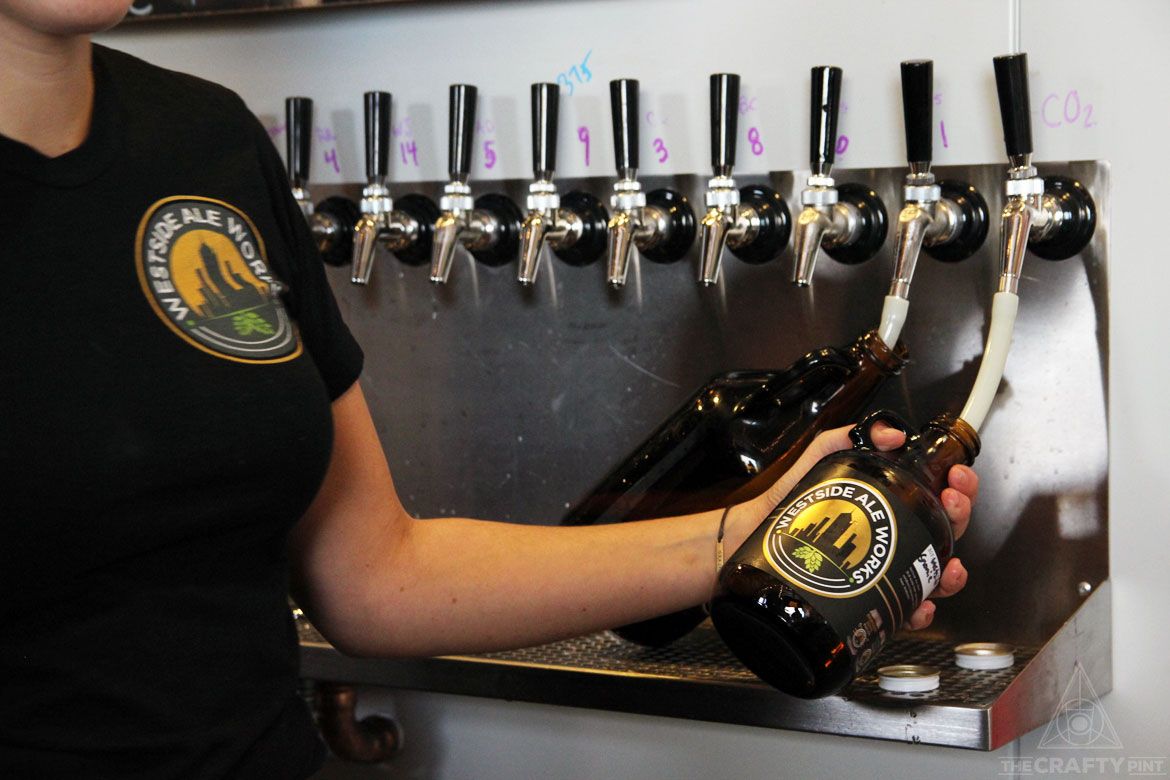
He's signed Thirsty Merchants up to a brand new operation, Find My Growler, which is developing an online marketplace to connect drinkers with breweries and venues filling growlers. And it's online where the owner of one new Melbourne bar has headed with his growlers in more ways than one.
Near & Far opened in Fitzroy just before Christmas and, since the shutdown, has switched to takeaway sales and home deliveries. While mixed packs of cans have played a big role, co-owner Jason Cameron (pictured at top of article) moved quickly to boost their stock of growlers and squealers to ensure the keg beer he'd amassed from far and wide wouldn't go to waste.
As well as delivering growlers free to homes around Melbourne, they've been offering bonus content too, such as when the people who snapped up one Range beer were treated to a Zoom catch up with the brewer on the evening they were delivered.
"We've been ticking through the kegs," he says. "It's nowhere near the pace of the bar [when it was open] but we're getting through stock we already had and will be able to start ordering from local breweries soon which is the end goal."
As for the delivery service, he says: "We feel like the milkman. People have a growler already, order another one online, then we collect the empty and leave the new one on their doorstep."
And then there's the repeat growler customers at the venue.
"We're seeing the same faces at the bar; it feels like a local community drop in point – people say it's the highlight of their day, just getting out to have a chat."
At Seasonal, Brody and the team have noticed other benefits.
“Now that people have them, we’re getting a lot of the people coming back that are asking for different beer styles," he says. "There was one week where our Trappist-style beer was the second biggest seller, where it might have normally been a slower beer to sell. So maybe people are stepping out of their comfort zone a little too. Likewise, our Baltic Porter and Modern Rustic Farmhouse Red.
“There’s also the environmental benefit, too. Any sort of reuse is better than single use that winds up in landfill or enters a recycling chain. If you can eliminate the waste, that’s a bonus.”
Who'd have thought a simple vessel could be so much: kind to the environment, uniter of communities and, for now at least, saviour of beer businesses.
"I'd love to see it become a bigger part of how people drink," Tom says. "It means more fresh beer at home."
As part of the #keepinglocalalive campaign we're running Postcards from the Edge stories, highlighting the ways in which people are adapting to survive. If you've got a story you think is suitable – or have something to add to the campaign resources online – get in touch.
Article by Guy Southern and James Smith.



